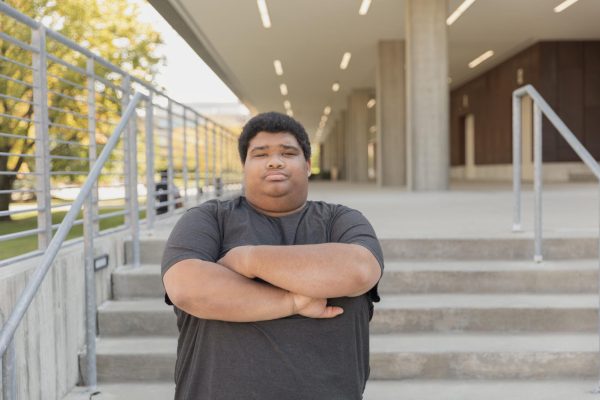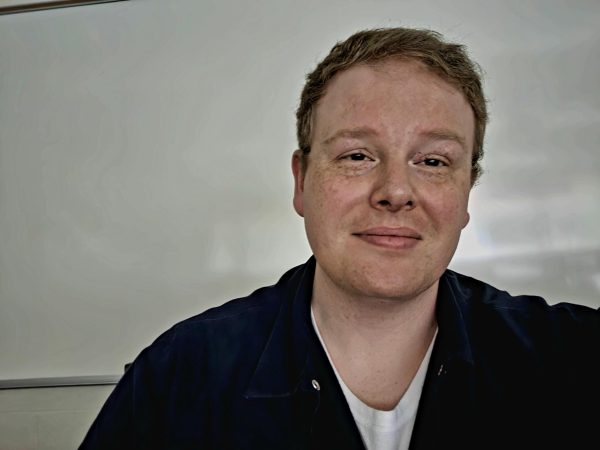Letter to the editor: Silent witness to a genocide
This is the second month of the war. Ukrainians continue to fight alone in defense of their democracy, their families, and basic human decency. In recent days, we have been witness to the atrocities in Bucha and Mariupol, and there will be others. We are obliged to not be silent witnesses, but to speak and call this what it is. A genocide.
Lessons from the Greatest Generation
We are not the greatest generation. A generation of Americans earned that distinction eight decades ago, and they didn’t earn it by simply living through difficult times. They earned it by their actions and with sacrifice. To be sure, they started out with missteps, turned away refugees seeking safety, adopted a stance of neutrality at the start of one of history’s most monstrous regimes, and went to war with a segregated army. But they fought that war, restored democracy to occupied people, liberated the death camps, and built institutions to ensure it would not happen again.
In 1945, US Supreme Court Justice Robert Jackson, serving as a prosecutor during the Nuremberg war crimes trials, said in his opening remarks:
“The wrongs which we seek to condemn and punish have been so calculated, so malignant, and so devastating, that civilization cannot tolerate their being ignored, because it cannot survive their being repeated. That four great nations, flushed with victory and stung with injury stay the hand of vengeance and voluntarily submit their captive enemies to the judgement of the law is one of the most significant tributes that Power has ever paid to Reason.”
Justice Jackson’s remarks did more than open a trial of war criminals. With these two sentences, the United States and our allies opened a new era of international relations. “Never again” and the rule of law became the guiding moral principles behind much of our diplomacy.
Building on the work of Justice Jackson and others, in 1948 the United States signed the International Convention on the Prevention and Punishment of Genocide. In 1987, Congress passed 18 USC Section 1091, the Genocide Convention Implementation Act, codifying genocide as a federal crime. Year after year, the US Congress recognizes and condemns past and ongoing genocides around the world. We are obliged to act.
A genocide in progress
When the Russian Federation committed to a full-scale invasion of Ukraine it rightly met with widespread condemnation. This aggression shattered the rule of law that was so eloquently defended by Justice Jackson. It is a crime, the crime of waging aggressive war. The precedent for recognizing it as such goes back to the Nuremburg trials, themselves.
It is also a genocide, a term coined by the lawyer Raphael Lemkin and defined to include “the disintegration of the political and social institutions, of culture, language, national feelings, religion, and the economic existence of national groups.” The journalist Masha Gessen, in their book Autocracy: Rules for Survival, tells us that Rule #1 is to believe the autocrat, he means what he says. When Vladimir Putin began his criminal war by asserting that Ukraine was an artificial creation of the Soviet Union and not a legitimate culture or people, he stated from the outset his intention to commit a genocide. We should have believed he would do it.
It is impossible to look at his plan in action and not recognize a genocide in progress. The forcible deportation of people from occupied regions of Ukraine, reported lists of individuals to be rounded up, the targeting of schools and hospitals, the killing of children, and the bodies of civilians in the streets, some with hands tied behind their backs. These are images of crimes against humanity. These are images of a genocide.
Silent witness
On April 4, National Security Adviser Jake Sullivan, standing before the seal of the White House, stated “we have not yet seen the level of systematic deprivation of life of the Ukrainian people to rise to the level of genocide”. What remains of Jake Sullivan’s career should be haunted by these words. One can’t help remembering a similar response when, twenty-eight years ago, the White House directed officials to avoid calling the atrocities in Rwanda a genocide, and instead to use the term “acts of genocide” out of fear that the United States might be obliged to act. Refusing to call a genocide what it is does not stop it. It merely makes us a silent witness to it.
In his closing remarks at the Nuremberg trials, Justice Robert Jackson said “If you were to say of these men that they are not guilty, it would be as true to say that there has been no war, there are no slain, that there has been no crime.” His words are an admonishment that the search for justice begins with an admission of the truth. We must not be silent. We must call this what it is. A genocide.





